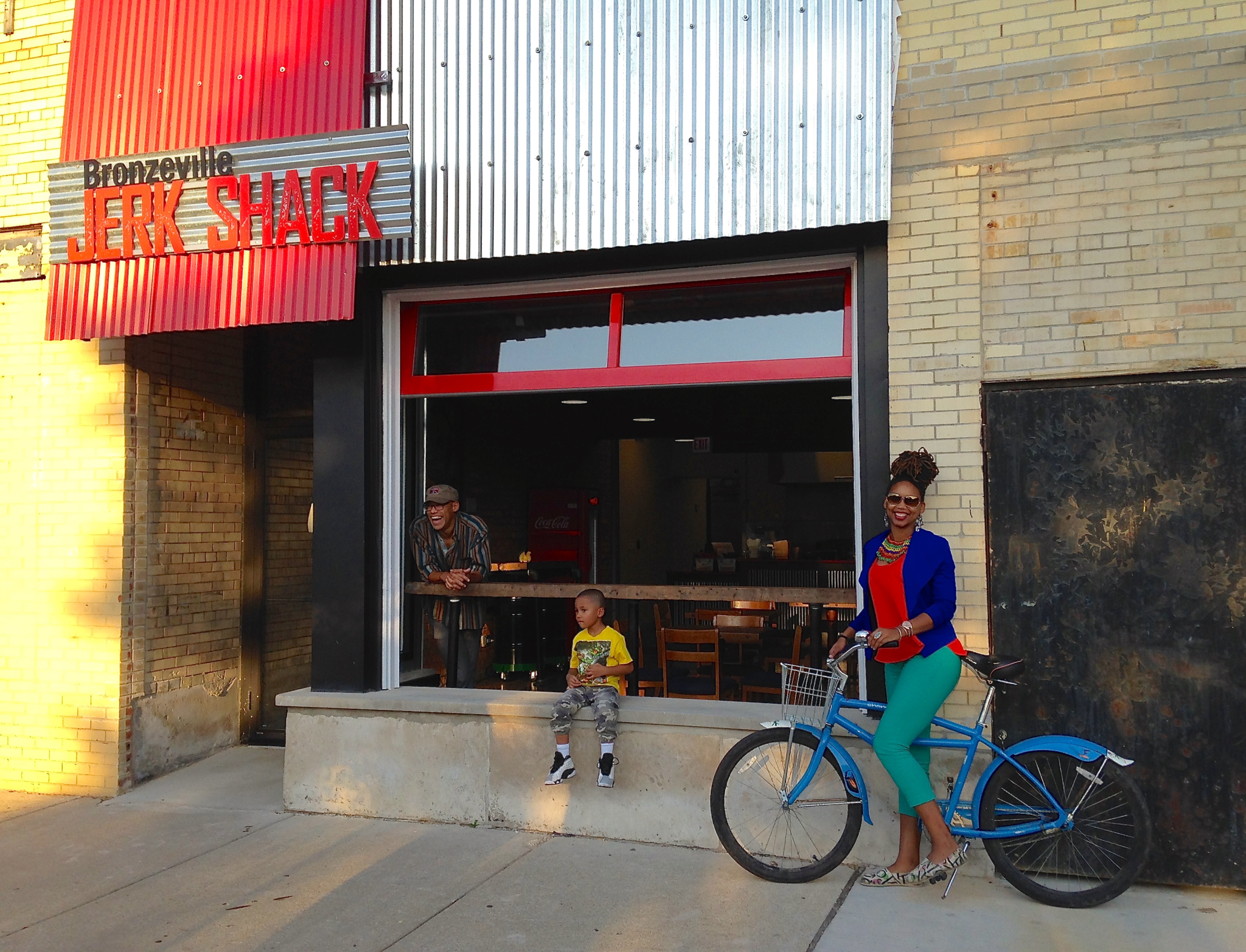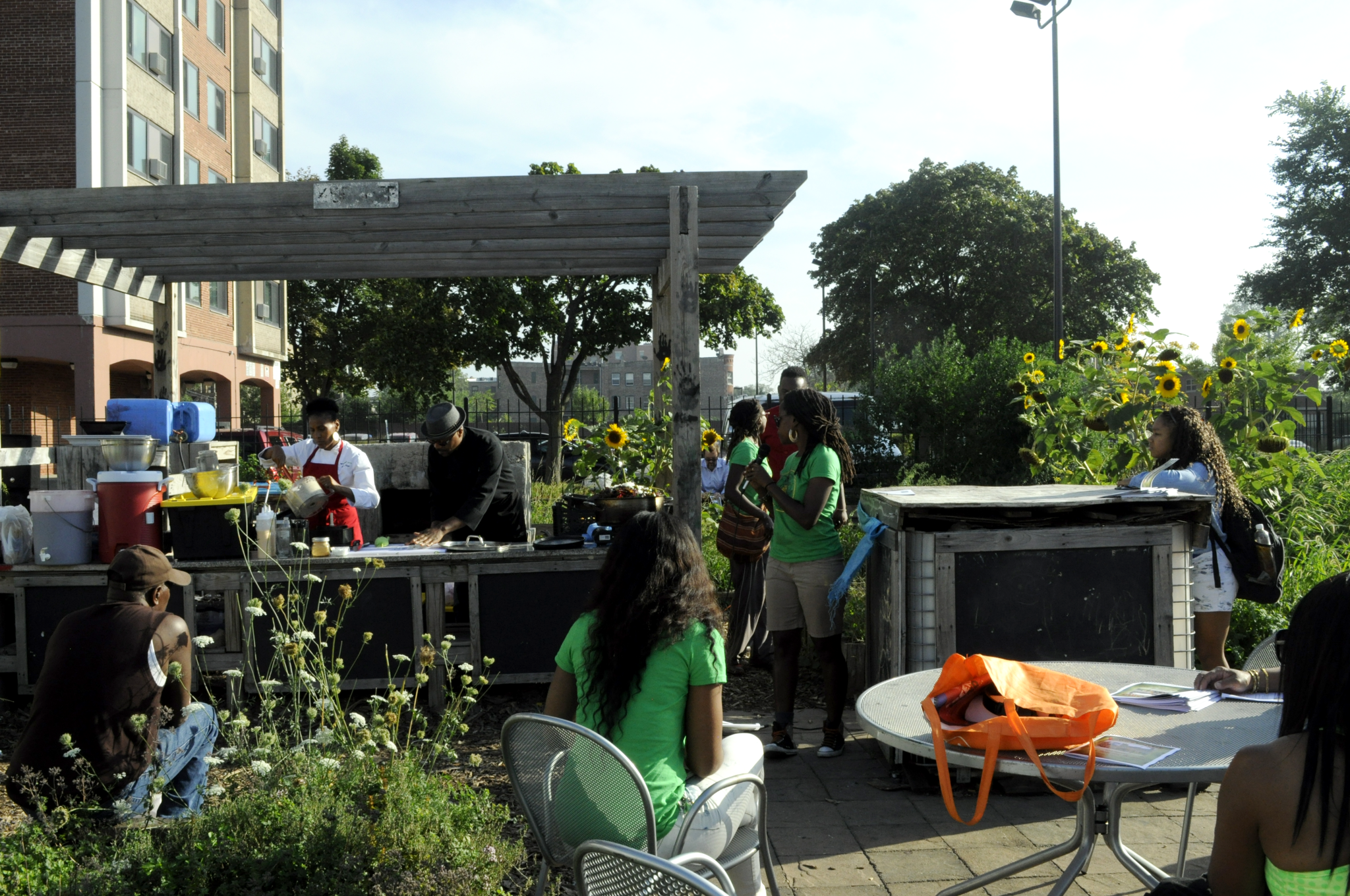Lauran Smith is the CEO of public relations firm PR by Elle77, which she founded in March of 2012, and has thirteen years of experience in the corporate world under her belt. Bernard Loyd is a Chicago native who grew up in Liberia and returned to the United States to pursue a career in management consulting and economic development. Contrary to what one might expect, what has drawn them together is not their business experience, but rather their shared passion for food, black history, and community empowerment, all of which converged during the second week of February in the first ever Chicago Black Restaurant Week.
Smith, who played a lead role in organizing CBRW, says she got the idea from friends in the restaurant business who felt they weren’t getting the recognition they deserved. “I have quite a few friends that are restaurant owners, and I know that I love patronizing their business, so I just felt like there needed to be a way other people could experience it as well,” she says. “So, I came up with Chicago Black Restaurant Week because I felt they needed their time to shine.”
Chicago Black Restaurant Week featured seventeen restaurants across the Chicagoland area out of the over 123 black-owned restaurants in the city and took place soon after the close of Chicago Restaurant Week, an annual celebration of the city’s food scene when restaurateurs offer prix fixe menus. Unlike Chicago Restaurant Week, however, restaurants participating in Chicago Black Restaurant Week were asked to create a series of specials that reflect the individual character of their establishments. Additionally, rather than collaborating with Choose Chicago, the city’s official tourism board and the organizer of Chicago Restaurant Week, Smith opted for a more grassroots, community approach. “I felt like I was able to do this on my own, and I didn’t need that backing,” Smith says. “I wanted it to be simple, I don’t feel like I needed it to be grand.”
 Many of the restaurants that participated are located on the South and West Sides of Chicago, like the Bronzeville Jerk Shack, which sits at the intersection of S. Prairie Ave and 51st near the 51st Street Green Line stop in Bronzeville. Like Smith, its owner and founder, Bernard Loyd, comes from a professional business background, having worked and lived on the South Side of Chicago for twenty years. However, his foray into the culinary industry began only recently. “After spending twelve, thirteen years as a consultant, I decided I wanted to take the skills that I had built there and do for my community what I had worked with many corporations to do, to build enterprises,” Loyd says.
Many of the restaurants that participated are located on the South and West Sides of Chicago, like the Bronzeville Jerk Shack, which sits at the intersection of S. Prairie Ave and 51st near the 51st Street Green Line stop in Bronzeville. Like Smith, its owner and founder, Bernard Loyd, comes from a professional business background, having worked and lived on the South Side of Chicago for twenty years. However, his foray into the culinary industry began only recently. “After spending twelve, thirteen years as a consultant, I decided I wanted to take the skills that I had built there and do for my community what I had worked with many corporations to do, to build enterprises,” Loyd says.
The enterprise he built is a humble and welcoming restaurant located on a once bustling strip of 51st Street, where all the employees are South Side locals. The location was specifically chosen. “Bronzeville is the heart of black Chicago,” says Loyd. “This is where African Americans moved to because we couldn’t live elsewhere, and hundreds of enterprises were created back in the day. That’s why we’re in this community.”
The menu is simple: customers can get various portion sizes of jerk chicken or pork, complete with a variety of sides to choose from, including a deliciously sweet fried cornmeal dumpling called festival. “Festival is a very popular item in Jamaica, but it hasn’t really made it over here yet,” says Loyd. The half dark chicken, which comes with a side of festival, sauce, and white bread, is satisfyingly cooked and subtly spiced, although the scorching heat of its jerk flavor only becomes apparent about halfway through the meal. Impressively, the meat stays juicy without getting too greasy.
Loyd says this is because a major component of Bronzeville Jerk Shack is its commitment to providing healthier and more sustainable food on the South Side. “Long story short, food is a key unmet need in this community,” he says. “There is a lot of food, but most of it is not very good food. It’s greasy fast food, highly salted, and so forth.” Loyd says that Bronzeville Jerk Shack has hosted community meetings on sustainability and sources many of the ingredients it uses locally, some of them grown by the business itself. “We actually have a rooftop farm and we actually source some of our ingredients from that garden,” Loyd says.
Smith says that other CBRW restaurants have made similar commitments to providing healthy, accessible food. “I just like that it’s affordable, the food is cooked well, and it’s healthy,” she says. “We have healthy food in our community and people need to know about it.”
Another exemplary restaurant among the seventeen participants is Chuck Wagon Grill, located at 1120 Central Avenue in Wilmette, just outside Chicago. Smith says that the owner and chef cooks without salt. “So that’s just one person who is conscious of what he cooks, how he cooks, how he’s preparing his food,” she says. “So it makes a difference to know where you can get good food that isn’t going to have too many extra additives in it.”
But the most important aspect of CBRW for Smith and Loyd is its celebration of black cooking and history and its provision of desperately needed publicity for black-owned businesses. “The reason behind creating it at all is to celebrate my own community,” says Smith. “The reason that it’s held on the second week of February is that in 1926, Dr. Carter Woodson founded the Negro History Week.”
Loyd says that efforts like Chicago Black Restaurant Week are vital for the Chicago African-American food scene because opening and operating a restaurant is often more difficult for black owners than for other sectors of the population, especially on the South Side. “Black restaurants really don’t have the access to the kinds of resources that a restaurant in another ethnic community might have,” he says. “Banks are still very reluctant to lend in these communities, and in many cases the family and friend wealth is simply not there to support these restaurants.”
“And in many cases,” he continues, “these restaurants are located in historically black communities and often we don’t get the level of positive recognition that [we] should.”
Loyd and Smith think the inaugural Chicago Black Restaurant Week was a success and are already planning for the next one: Loyd hopes to have Bronzeville Jerk Shack participate again next year, and Smith already has plans to expand the list of restaurants. But Loyd hopes that the event encourages diners to visit black-owned restaurants more often. “We encourage people to not stop at Black Restaurant Week,” he says. “We want people to come out and support us and all the other restaurants that are trying to provide something new, something different, and something a little healthier in Chicago.”




Loving this article. I had no idea we had a Black Restaurant Week being held in the City of Chicago! Wonderful. We are always looking for a quality Black restaurant to dine at. They are few and far between… especially ones which serve healthy foods. I would not have found this article or the .com for
SouthSide Weekly if I had not been looking at the t.v. program You & Me
in which a student editor of the weekly was being interviewed. Thanks to Smith and Loyd for their diligent work in the community .. African American community.
I think its great but when you say that family and friends is not enough to support these businesses, I beg to differ because if the local churches can pass the bucket four and five times to collect donations on Sunday and tithes and offerings each week, then yes, they can support these small black owned businesses. If black professional people can put $5,000 down on a brand new Mercedes or Lexus when the car they have now runs fine, they can invest in a black entrepreneur, be partners with them, have some real ownership and create jobs while circulating money in the black community. So I don’t buy that fact we ain’t got enough wealth to support black owned businesses. And by the way, didn’t you just say that Black Restaurant Week was a success.